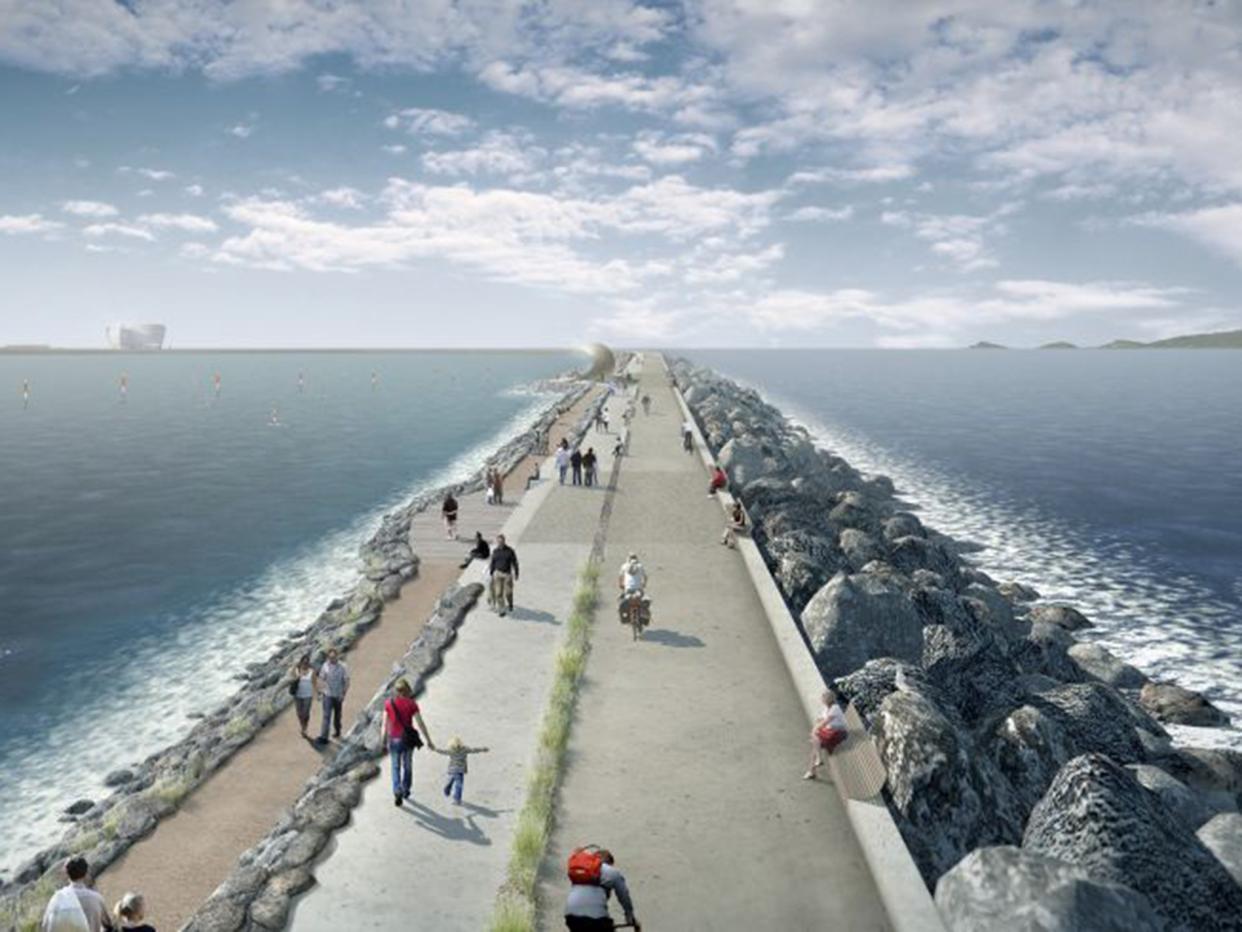Swansea Bay tidal lagoon project turned down by government after long delays

The £1.3bn Swansea Bay tidal lagoon has been rejected by the government, crushing hopes it would spark an “economic revolution” in Wales.
Following 18 months of analysis, ministers have decided that the renewable energy project will not receive any subsidy support, despite independent experts stating that it would be a “no regrets policy”.
Supporters hoped the initiative could be a "pathfinder" project that would pave the way for more tidal lagoons across the UK.
However, Greg Clark, the business secretary, told the House of Commons the project “however novel and appealing” did not demonstrate value for money for consumers and the general public.
A report on the project released in January 2017 concluded that the project would bring huge benefits, and could be a highly cost-effective way of generating electricity.
The report stated it was “beyond question” that the local economy would benefit, and that it would be cheaper than offshore wind.
However, opponents of the scheme voiced concerns about the affordability of the technology, as well as its impact on the environment.
Tidal Lagoon Power – the company behind the development – claimed the tidal lagoon’s turbines would have been capable of powering over 150,000 homes for around 120 years, but was in need of government subsidies similar to those given to nuclear developments to undertake its project.
In the proposed development, a large U-shaped wall constructed in Swansea bay would be lined with turbines that generate electricity as they are driven by the rise and fall of the tide.
The Welsh government had promised £200m to help build the lagoon, with South Wales West assembly member Suzy Davies stating it would be an opportunity to “unleash an economic revolution in Wales”.
However, government representatives suggested this figure would not be enough to cover the costs of such an ambitious project.
Chief executive of trade association RenewableUK, Hugh McNeal, said: “This decision is deeply disappointing and shows a lack of vision.
“Tidal lagoons have massive potential to meet our national energy needs and create jobs, as well as bringing industrial-scale economic benefits to the UK – including opportunities to export worldwide.
“The review commissioned by the government on this innovative technology found that it can deliver secure power at a price that’s competitive in the long term."
Respoding to the decision, shadow business secretary Rebecca Long-Bailey, said: ”Scrapping the tidal lagoon on the same day as supporting a third runway at Heathrow is a kick in the teeth not only for Wales but for the renewables sector and industries outside the capital.
“Thousands of workers will now miss out on high-quality employment and thousands of households will miss out on the benefits of zero-carbon energy.”

 Yahoo News
Yahoo News 
